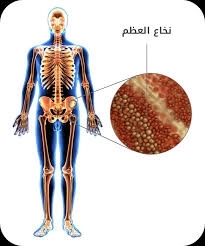
Bone Marrow Transplant and Blood Cancer Treatment – With Dr. Mohamed El Shazly
Published on: 2025-06-23 | Written by: Dr. Mohamed Mustafa El Shazly, Consultant and Lecturer of Hematology
Dr. Mohamed Mostafa El Shazly, Consultant in Hematology and Specialist in Bleeding and Clotting Disorders, explains that bone marrow transplant (BMT) is one of the most advanced treatment options for various malignant blood diseases, such as leukemia, lymphoma, and multiple myeloma.
In this article, we explore what a bone marrow transplant is, when it’s needed, its types, and how the doctor determines if it’s suitable for a patient.
What Is a Bone Marrow Transplant?
A bone marrow transplant is a medical procedure in which damaged or diseased bone marrow is replaced with healthy stem cells that can regenerate normal blood cells.
Dr. Mohamed Mostafa El Shazly explains that this treatment helps:
-
Restore the body's ability to produce healthy blood cells
-
Enable patients to receive high-dose chemotherapy
-
Rebuild a functional immune system after aggressive treatments
Which Conditions Can Benefit from a Bone Marrow Transplant?
BMT is used to treat various malignant blood disorders, including:
-
Leukemia (acute and chronic blood cancer)
-
Lymphoma (cancer of the lymphatic system)
-
Multiple myeloma (cancer of plasma cells)
-
Severe inherited blood diseases such as thalassemia or Fanconi anemia
Dr. Mohamed Mostafa El Shazly stresses that the decision to undergo a transplant is made only after careful assessment of the patient’s response to initial treatments.
Types of Bone Marrow Transplants
-
Autologous Transplant:
Uses the patient’s own stem cells. Often applied in cases like lymphoma or multiple myeloma. -
Allogeneic Transplant:
Uses stem cells from a matching donor (a relative or a registry donor). Typically used in leukemia and some inherited diseases.
Dr. Mohamed Mostafa El Shazly points out that the type of transplant depends on the nature of the disease, the patient’s age, and donor availability.
Stages of a Bone Marrow Transplant
-
Preparation:
The patient receives intensive chemotherapy or radiation to destroy diseased cells and marrow. -
Transplantation:
Healthy stem cells are infused through a vein, similar to a blood transfusion. -
Follow-Up:
Close monitoring in a specialized transplant unit to track immune recovery and blood cell production.
Dr. Mohamed Mostafa El Shazly highlights the critical role of post-transplant care in preventing complications such as graft rejection or infection.
Life After the Transplant
-
Full recovery can take several months
-
Patients must avoid crowds and follow strict hygiene and medication protocols
-
Regular follow-ups are essential to monitor blood counts and organ function
Conclusion
A bone marrow transplant offers real hope for patients with malignant blood disorders, especially those who do not respond to conventional therapies. Dr. Mohamed Mostafa El Shazly emphasizes that the success of the transplant depends on timing, disease type, and expert medical management before and after the procedure.

